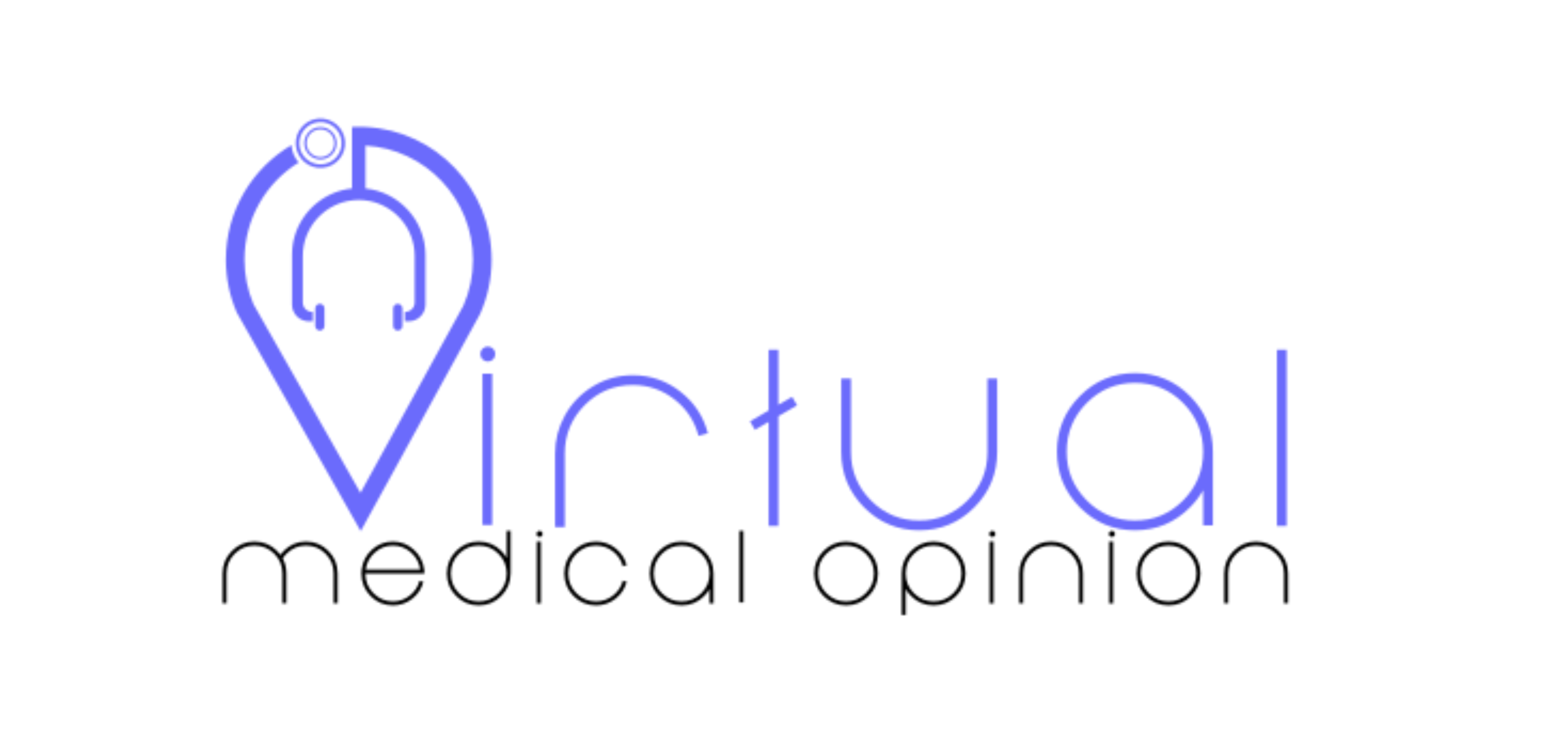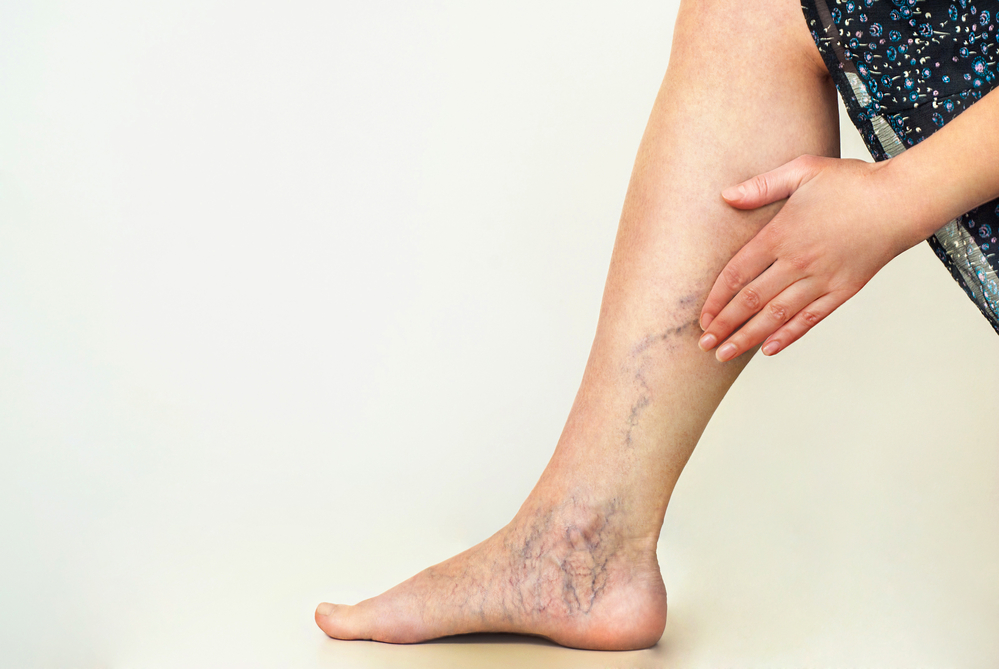Varicose veins are twisted, enlarged veins. Any superficial vein may become varicosed, but the veins most commonly affected are those in your legs. That's because standing and walking upright increases the pressure in the veins of your lower body.
Causes:
· Pregnancy: The more babies you have, the more the risk of permanent varicose veins developing. Varicose veins tend to appear, or become worse, during pregnancy but often improve after childbirth when the pressure on the veins eases.
· Age.
· Standing a lot
· Sometimes an underlying disease may cause varicose veins - for example a previous blood clot (thrombosis) or injury in a deep leg vein.
Mild symptoms:
• Swelling in your feet and ankles
• Heaviness, burning, aching, tiredness, or pain in your legs, particularly when you stand or sit for a long time
• Itchy skin over the vein
More serious symptoms:
• Leg swelling
• Swelling and calf pain after you sit or stand for long periods of time
• Skin changes, such as skin color or dry, thin or scaling skin
• Inflammation
• Open sores or excessive bleeding after a minor injury
When to see a doctor?
Self-care — such as exercise, elevating your legs or wearing compression stockings — can help you ease the pain of varicose veins and may prevent them from getting worse. But if you're concerned about how your veins look and feel and self-care measures haven't stopped your condition from getting worse, see your doctor.
ویریکوز رگیں۔ (varicosed veins)
ویریکوز رگیں ٹیڑھی اور پھولی ہوئی رگوں کو کہتے ہیں۔ کوئی بھی سطحی رگ ویریکوز ہو سکتی ہے ، لیکن سب سے زیادہ متاثر ہونے والی رگیں ٹانگوں میں ہوتی ہیں۔ اس کی وجہ یہ ہے کہ کھڑے ہونا اور سیدھا چلنا آپ کے نچلے جسم کی رگوں میں دباؤ بڑھاتا ہے۔
اسباب:
-حمل: آپ کے جتنے زیادہ بچے ہوں گے ، ویریکوز رگوں کا خطرہ اتنا ہی زیادہ ہوگا۔ حمل کے دوران ویریکوز رگیں ظاہر ہوتی ہیں ، یا بدتر ہو جاتی ہیں لیکن اکثر بچے کی پیدائش کے بعد بہتر ہوجاتی ہیں جب رگوں پر دباؤ کم ہوتا ہے۔
-بڑھتی عمر
-وزن زیادہ ہونا
-بہت دیر کھڑے رہنا۔
-بعض اوقات کوئی پوشیدہ بیماری ویریکوز رگوں کا سبب بن سکتی ہے - مثال کے طور پر خون کا جمنا (تھرومبوسس) یا ٹانگوں کی گہری رگ میں چوٹ۔
ابتدائی علامات:
- پاؤں اور ٹخنوں میں سوزش۔
- بھاری پن ، جلن ، درد ، تھکاوٹ ، یا آپ کے پیروں میں درد ، خاص طور پر جب آپ کھڑے ہوں یا زیادہ دیر بیٹھے ہوں
- رگ کے اوپر والی جلد میں خارش۔
زیادہ سنگین علامات:
- ٹانگوں میں سوزش
- طویل وقت تک بیٹھنے یا کھڑے ہونے کے بعد سوزش اور پنڈلی کا درد۔
- ویریکوز رگ کے اوپر کی جلد کی تبدیلیاں ، جیسے جلد کا رنگ یا خشکی۔
- معمولی زخم کے بعد زخم جلد نہ بھرنا یا زیادہ خون بہنا۔
ڈاکٹر سے کب ملنا ہے
خود کی دیکھ بھال-جیسے ورزش ، اپنی ٹانگوں کو بلند کرنا یا کمپریشن جرابیں پہننا، آپ کو ویریکوز رگوں کے درد کو کم کرنے میں مدد دے سکتا ہے اور انہیں مزید خراب ہونے سے روک سکتا ہے۔ لیکن اگر آپ اس بارے میں فکر مند ہیں کہ آپ کی رگیں کس طرح دکھتی ہیں اور خود کی دیکھ بھال کے اقدامات کے باوجود آپ کی ویریکوز رگیں پہلے سے زیادہ خراب ہورہی ہیں تو اپنے ڈاکٹر سے رجوع کریں
Doctors to consult (Dermatologist):
Dr. Obaidur Rehman, Dr Shamsa Kanwal
Note: Click the Doctor's name to make an appointment.
Reference:
https://www.mayoclinic.org/diseases-conditions/varicose-veins/symptoms-causes/syc-20350643
https://patient.info/heart-health/varicose-veins-leaflet
https://www.vcuhealth.org/-/media/media/file/radiology_varicoseveinspatientinfo_march2019_webaccess.ashx

